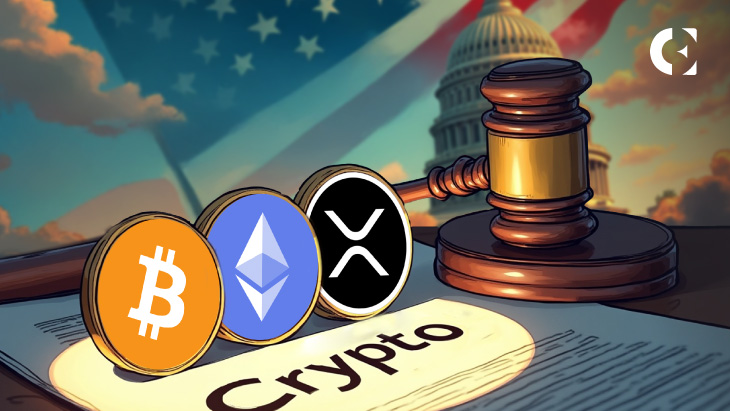- A massive coalition of over 100 crypto companies and advocacy groups, including Coinbase, Kraken, Ripple, a16z, Grayscale, Uniswap Labs, and Solana Labs, has sent a formal letter to the Senate Banking Committee
- The crypto lobbyists argue that developers should not be held criminally liable for third-party misuse of open-source tools
- This is the largest crypto advocacy coalition in history, coordinated mainly by the DeFi Education Fund
A massive coalition of over 100 crypto companies and advocacy groups, including Coinbase, Kraken, Ripple, a16z, Grayscale, Uniswap Labs, and Solana Labs, has put the Senate Banking Committee on notice. In a formal letter, the group stated that they cannot support the upcoming Market Structure Bill unless it includes explicit legal protections for software developers and non-custodial service providers.
The letter states:
“Provide robust, nationwide protections for software developers and non-custodial service providers in market structure legislation. Without such protections, we cannot support a market structure bill.”
Crypto lobbyists argue that developers should not be held criminally liable for third-party misuse of open-source tools, drawing parallels to other neutral infrastructure like roads or the internet. They seek protection from prosecution under money-transmitting statutes (such as US Code 1960), with the goal of ensuring that federal law doesn’t penalize software developers who don’t hold or manage user funds.
Related: Ripple CLO to Congress: Don’t Classify All Crypto as Securities Indefinitely
The Digital Asset Market Clarity Act already passed the House with developer safeguards for DeFi and peer-to-peer networks. Now the fight shifts to making sure these protections are carried over into the Senate’s version.
Why Is This Happening Now?
This effort likely shows a growing concern within the industry, especially after the recent prosecution and conviction of Tornado Cash developer Roman Storm. While the Department of Justice has since indicated it will exercise more restraint with truly decentralized software, having specific protective legislation is still seen as a superior solution.
Related: US House Prepares to Approve Crypto Market Structure Bill, Says Caitlin Long
Coordinated mainly by the DeFi Education Fund, this is now the largest crypto advocacy coalition in history, questioning whether the industry can support a bill that might criminalize open-source innovation.
What Happens if the Senate Ignores This Demand?
If the Senate doesn’t include explicit developer protections, the consequences could extend far beyond the US market. For instance, developers may relocate to more crypto-friendly jurisdictions, putting the US at risk of falling behind in Web3 innovation.
Failing to act also means investor confidence could be negatively impacted if open source contributors face legal uncertainty, which may ultimately slow down the pace of innovation in both decentralized finance and blockchain research.
On the other hand, clear rules could unlock more institutional participation, as firms would feel safer engaging with compliant projects. As such, the Senate’s decision may very well shape not just regulation, but the global competitiveness of the US crypto sector as well.
Disclaimer: The information presented in this article is for informational and educational purposes only. The article does not constitute financial advice or advice of any kind. Coin Edition is not responsible for any losses incurred as a result of the utilization of content, products, or services mentioned. Readers are advised to exercise caution before taking any action related to the company.







